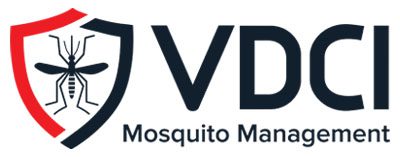Where Do Mosquitoes Go in the Winter?
Mosquitoes are tiny yet annoying (and in some cases deadly) insects that have thrived across the globe for millions of years, even through multiple ice ages. But where do mosquitoes go in the winter? Their resilience can be credited to two different survival adaptations – diapause and quiescence. Through diapause, blood-feeding females become dormant, similar to hibernation, by decreasing their metabolic activity. Through quiescence, adult populations die off but their eggs remain dormant until activated by favorable temperatures. So, how cold is too cold for mosquitoes? At what temperatures do mosquitoes enter and emerge from these states of dormancy? By understanding the delicate balance between temperature and mosquito activity, we can take steps to prevent them before warm weather returns.
Understanding Mosquito Temperature Tolerance
Mosquitoes are ectothermic, or cold-blooded, meaning they rely on external temperatures to regulate their body temperature. Their activity, feeding, and reproduction are all closely tied to the temperature of the surrounding environment.
Mosquitoes become less active when temperatures consistently drop below 50°F. As the metabolic processes slow in females, they are less capable of seeking blood meals. Mosquito larvae development will also be interrupted. Though some species are more cold tolerant than others, most will perish or enter diapause once temperatures fall below 32°F, which answers the question, “how cold is too cold for mosquitoes?”
How Mosquito Temperature Tolerance Affects Mosquito Management
Considering the cold tolerance of mosquitoes is essential when designing effective mosquito control programs. Professionals may implement a variety of control strategies to prevent mosquito reproduction as temperatures rise and limit their impact on the public once summer is in full swing.
This starts with eliminating breeding sites. Through surveillance and mapping, experts identify standing water sources and other environments where mosquitoes are likely to propagate. EPA-registered larvacides can be proactively applied at high-risk areas to prevent larvae from maturing into adults. Public education can also help community members identify and eliminate potential habitats on their own properties, as well as employ best practices for personal protection from mosquitoes.

In addition, strategic mosquito trapping allows experts to assess population dynamics, reproductive behaviors, signs of insecticide resistance, and potential disease threats. If needed, intervention can take place through the use of EPA-registered adulticides, which may be applied via backpack or vehicle sprayers, commercial drones, or aircraft. Communities often establish action thresholds that dictate exactly when and how to intervene, helping to ensure a successful outcome.
While mosquito activity decreases as the temperature drops, mosquitoes will inevitably come back as temperatures rise again. Community members deserve to enjoy warm weather unhindered by biting mosquitoes and the potential of disease transmission. In the never-ending battle against mosquitoes, it’s crucial to target them at every stage of their lifecycle – from eggs to breeding adults. VDCI partners with states, municipalities, mosquito abatement districts, and public health organizations to execute Integrated Mosquito Management Programs that keep mosquitoes at bay as soon as they emerge in search of their first blood meal of the season.
Contact Us to Build Your Mosquito Management Program:
 Since 1992, Vector Disease Control International (VDCI) has taken pride in providing municipalities, mosquito abatement districts, industrial sites, planned communities, homeowners associations, and golf courses with the tools they need to run effective mosquito control programs. We are determined to protect the public health of the communities in which we operate. Our mosquito control professionals have over 100 years of combined experience in the field of public health, specifically vector disease control. We strive to provide the most effective and scientifically sound mosquito surveillance and control programs possible based on an Integrated Mosquito Management approach recommended by the American Mosquito Control Association (AMCA) and Centers for Disease Control and Prevention (CDC). VDCI is the only company in the country that can manage all aspects of an integrated mosquito management program, from surveillance to disease testing to aerial application in emergency situations.
Since 1992, Vector Disease Control International (VDCI) has taken pride in providing municipalities, mosquito abatement districts, industrial sites, planned communities, homeowners associations, and golf courses with the tools they need to run effective mosquito control programs. We are determined to protect the public health of the communities in which we operate. Our mosquito control professionals have over 100 years of combined experience in the field of public health, specifically vector disease control. We strive to provide the most effective and scientifically sound mosquito surveillance and control programs possible based on an Integrated Mosquito Management approach recommended by the American Mosquito Control Association (AMCA) and Centers for Disease Control and Prevention (CDC). VDCI is the only company in the country that can manage all aspects of an integrated mosquito management program, from surveillance to disease testing to aerial application in emergency situations.

